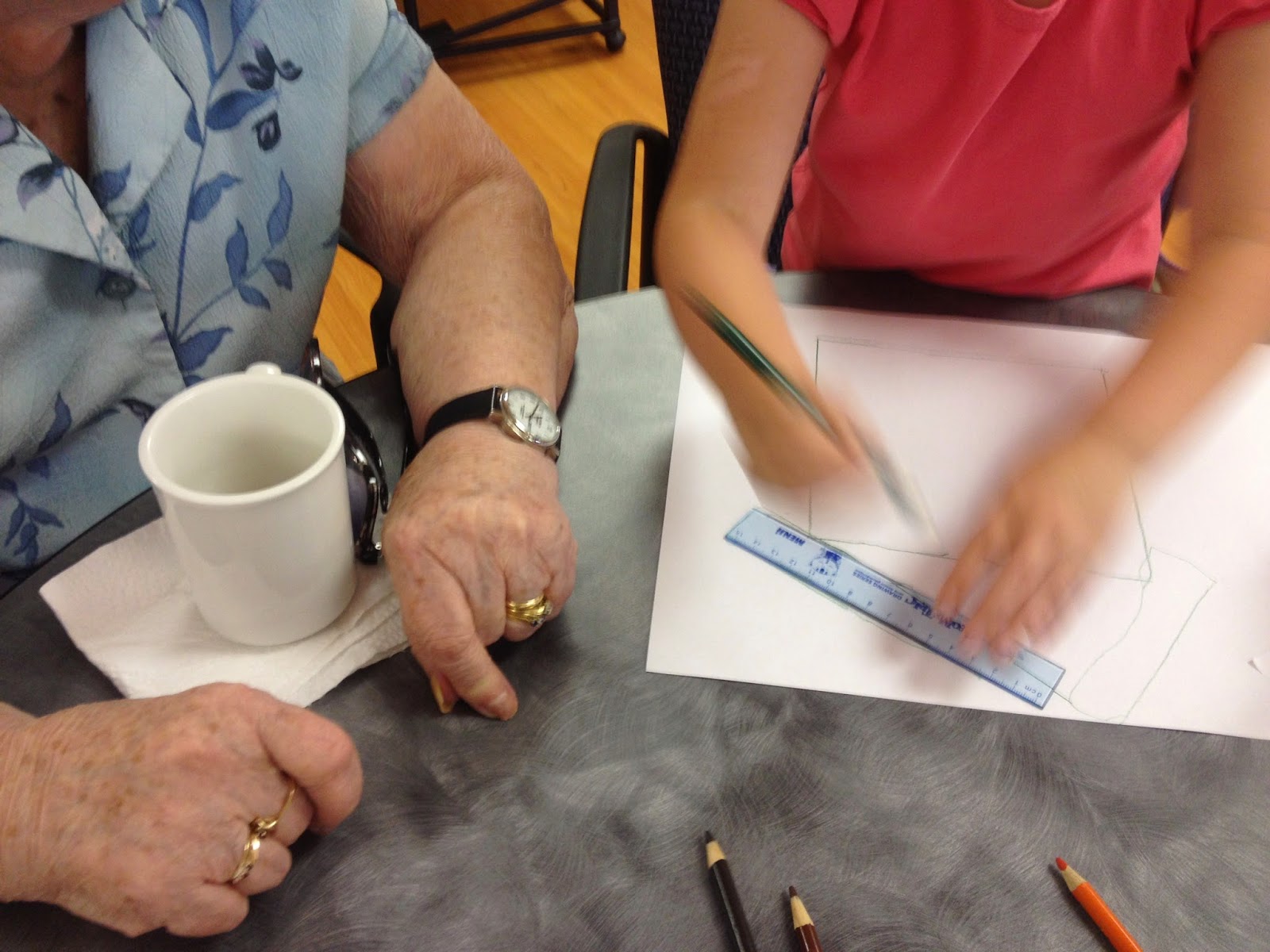Yesterday was our last day visiting our Grandpals at Courtyard Gardens. The early days were sometimes a challenge as our children were often shy to just jump in and strike up a conversation with these older adults. And, on the other side, some of our Grandpals were unsure how to talk to our children or what to do with them. However, each time we saw them, it was obvious their feelings of uncertainty and trepidation were slowly being left behind. Relationships are difficult and it can take a while to build up trust. And, this is where the commitment piece comes in. We must stay committed to the building of a relationship for it to be successful. It would have been easy to let this program go, to decide that it wasn't worth it. But, as educators and community advocates, we see great value in these types of connections and thus we did not simply 'throw in the towel' on this program. Yesterday's visit truly epitomised the meaning of these relationships and I believe we are all grateful for this wonderful opportunity to grow as individuals and as a group.
Here are some photos that speak to our relationship and I title them "Helping Hands"
To our Grandpals: Thank you Grandpals for lending us a helping hand when we need it. We hope we made your days bright and we offer you our hands when you need it.
Emily
Here are some photos that speak to our relationship and I title them "Helping Hands"
To our Grandpals: Thank you Grandpals for lending us a helping hand when we need it. We hope we made your days bright and we offer you our hands when you need it.
Emily














Comments